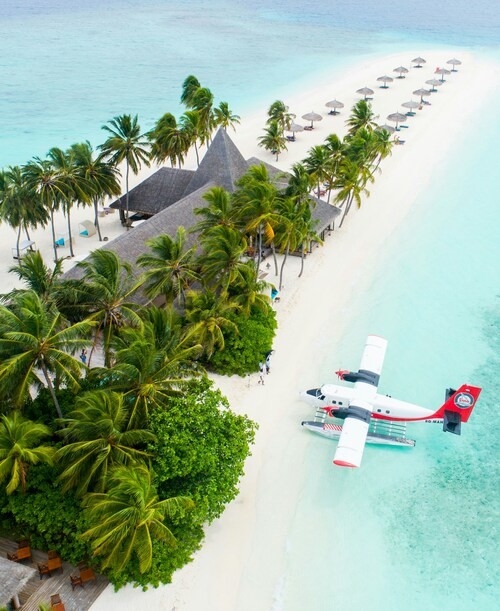Travel Safer

RISK MITIGATION | Text by gordon yuill
The Crucial Need for Medical or Travel Insurance.
Amid the bustling season of year-end getaways, the anticipation of an overseas holiday sparks meticulous planning for travel arrangements. Amidst the excitement, it is crucial to deliberate on medical emergency coverage, particularly for scuba divers venturing into the depths of international waters.
Understanding the inherent risks of occupational and recreational activities while travelling is paramount. Securing primary medical coverage involves proactive measures, such as notifying your medical aid company about your travel plans, obtaining additional travel insurance, or both.
Many Medical Schemes include international travel benefits in their plans through global partnerships. To ensure continuous coverage while abroad, informing the scheme and requesting a travel certificate is imperative. Most medical aids extend coverage for up to 90 days outside your country of residence, safeguarding you during international adventures.
However, the scope of medical aid coverage may be limited. Additional travel insurance becomes necessary for non-medical emergencies, extended coverage beyond 90 days, and comprehensive protection beyond medical emergencies. Here's why:
The Crucial Need for Medical or Travel Insurance.
Amid the bustling season of year-end getaways, the anticipation of an overseas holiday sparks meticulous planning for travel arrangements. Amidst the excitement, it is crucial to deliberate on medical emergency coverage, particularly for scuba divers venturing into the depths of international waters.
Understanding the inherent risks of occupational and recreational activities while travelling is paramount. Securing primary medical coverage involves proactive measures, such as notifying your medical aid company about your travel plans, obtaining additional travel insurance, or both.
Many Medical Schemes include international travel benefits in their plans through global partnerships. To ensure continuous coverage while abroad, informing the scheme and requesting a travel certificate is imperative. Most medical aids extend coverage for up to 90 days outside your country of residence, safeguarding you during international adventures.
However, the scope of medical aid coverage may be limited. Additional travel insurance becomes necessary for non-medical emergencies, extended coverage beyond 90 days, and comprehensive protection beyond medical emergencies. Here's why:
- Non-Medical Emergencies: Travel insurance comprehensively covers non-medical emergencies, such as trip cancellations, lost baggage, and travel delays—areas your medical aid may not address.
- Extended Coverage: Medical aid coverage during international travel is typically confined to 90 days. For prolonged trips, additional travel insurance becomes indispensable for sustained protection.
- Comprehensive Protection: Travel insurance offers an expansive spectrum of coverage, encompassing personal liability, legal expenses, and more. It establishes a comprehensive safety net that extends beyond mere medical emergencies.

For those without medical aid, prioritising financial health is imperative. Comprehensive travel insurance acts as a financial safeguard, covering medical costs and allowing individuals to focus on recovery without the burden of financial concerns.
In circumstances necessitating evacuation to a facility with superior medical capabilities, travel insurance frequently includes coverage for emergency evacuation, ensuring timely transportation to a medical facility equipped to address specific needs.
While medical aid and travel insurance may offer coverage for occupational and recreational activities, the extent varies based on specific policies. Individuals engaged in high-risk activities should meticulously review their insurance plans, contemplating additional coverage for a comprehensive protection umbrella.
Specifically tailored for scuba divers, being a DAN member ensures coverage for dive-specific injuries, including hyperbaric chamber treatments and evacuation expenses. This becomes crucial in remote diving locations where specialised facilities may be limited.
Whether through primary medical cover or comprehensive travel insurance, having adequate protection ensures that the joys of travel, especially for scuba divers exploring the underwater world, can occur with confidence and peace of mind.
In circumstances necessitating evacuation to a facility with superior medical capabilities, travel insurance frequently includes coverage for emergency evacuation, ensuring timely transportation to a medical facility equipped to address specific needs.
While medical aid and travel insurance may offer coverage for occupational and recreational activities, the extent varies based on specific policies. Individuals engaged in high-risk activities should meticulously review their insurance plans, contemplating additional coverage for a comprehensive protection umbrella.
Specifically tailored for scuba divers, being a DAN member ensures coverage for dive-specific injuries, including hyperbaric chamber treatments and evacuation expenses. This becomes crucial in remote diving locations where specialised facilities may be limited.
Whether through primary medical cover or comprehensive travel insurance, having adequate protection ensures that the joys of travel, especially for scuba divers exploring the underwater world, can occur with confidence and peace of mind.
Posted in Alert Diver Southern Africa, Dive Safety Tips
Posted in travel Insurance, Travel Safe, Travel smarter
Posted in travel Insurance, Travel Safe, Travel smarter
Categories
2025
2024
February
March
April
May
October
My name is Rosanne… DAN was there for me?My name is Pam… DAN was there for me?My name is Nadia… DAN was there for me?My name is Morgan… DAN was there for me?My name is Mark… DAN was there for me?My name is Julika… DAN was there for me?My name is James Lewis… DAN was there for me?My name is Jack… DAN was there for me?My name is Mrs. Du Toit… DAN was there for me?My name is Sean… DAN was there for me?My name is Clayton… DAN was there for me?My name is Claire… DAN was there for me?My name is Lauren… DAN was there for me?My name is Amos… DAN was there for me?My name is Kelly… DAN was there for me?Get to Know DAN Instructor: Mauro JijeGet to know DAN Instructor: Sinda da GraçaGet to know DAN Instructor: JP BarnardGet to know DAN instructor: Gregory DriesselGet to know DAN instructor Trainer: Christo van JaarsveldGet to Know DAN Instructor: Beto Vambiane
November
Get to know DAN Instructor: Dylan BowlesGet to know DAN instructor: Ryan CapazorioGet to know DAN Instructor: Tyrone LubbeGet to know DAN Instructor: Caitlyn MonahanScience Saves SharksSafety AngelsDiving Anilao with Adam SokolskiUnderstanding Dive Equipment RegulationsDiving With A PFOUnderwater NavigationFinding My PassionDiving Deep with DSLRDebunking Freediving MythsImmersion Pulmonary OedemaSwimmer's EarMEMBER PROFILE: RAY DALIOAdventure Auntie: Yvette OosthuizenClean Our OceansWhat to Look for in a Dive Boat
2023
January
March
Terrific Freedive ModeKaboom!....The Big Oxygen Safety IssueScuba Nudi ClothingThe Benefits of Being BaldDive into Freedive InstructionCape Marine Research and Diver DevelopmentThe Inhaca Ocean Alliance.“LIGHTS, Film, Action!”Demo DiversSpecial Forces DiverWhat Dive Computers Don\'t Know | PART 2Toughing It Out Is Dangerous
April
